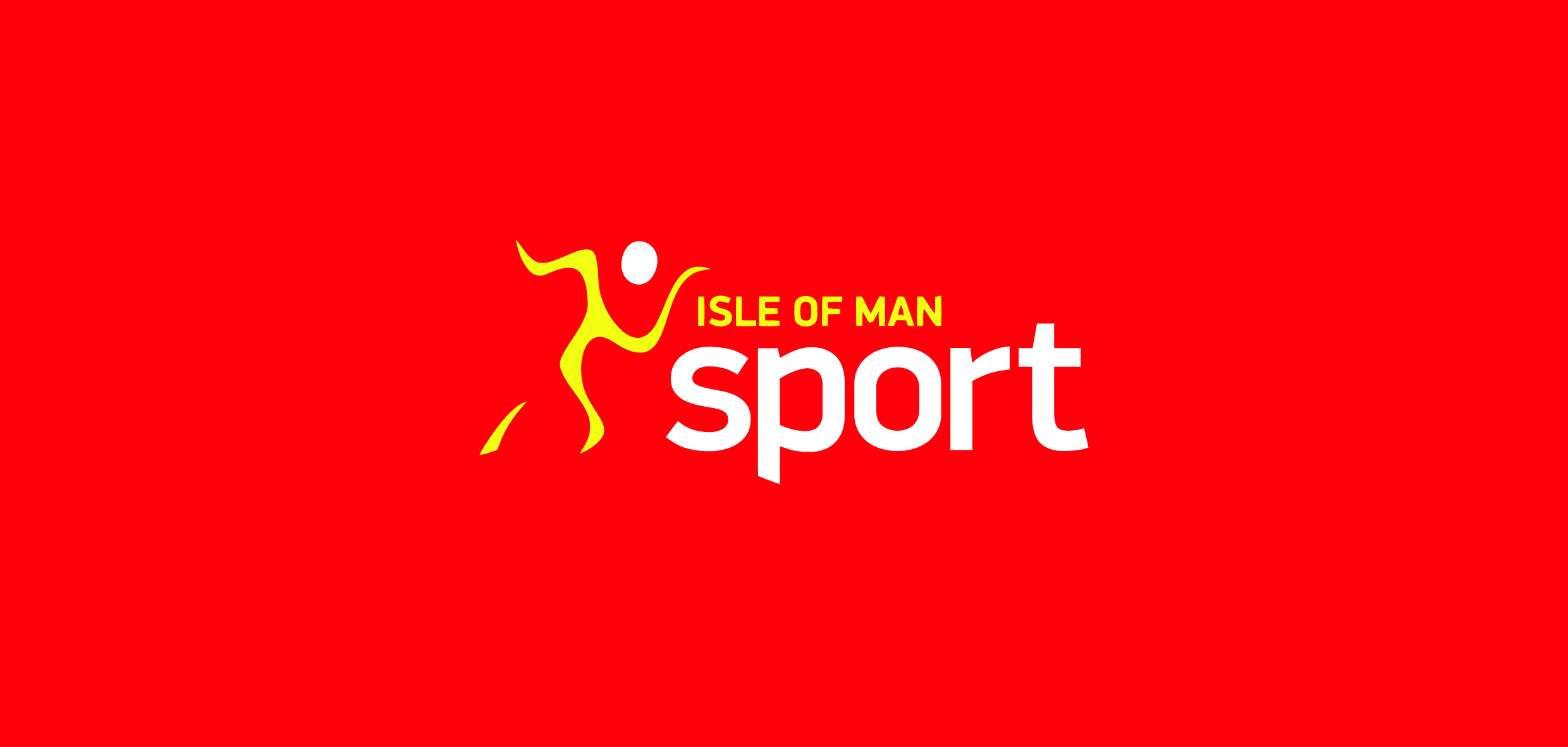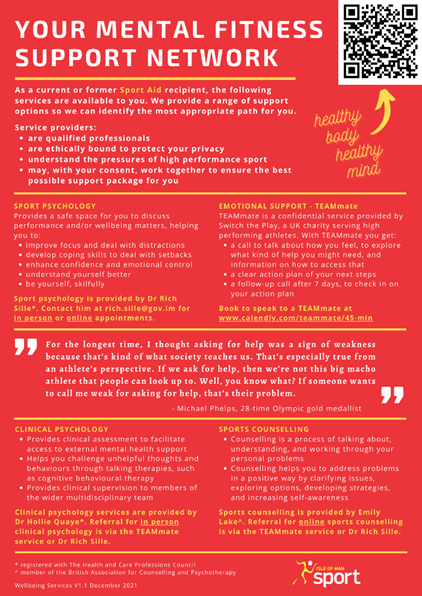Mental health is a state of well-being in which an individual realises his or her own abilities, can cope with the normal stresses of life, can work productively and is able to make a contribution to his or her community. – World Health Organisation
Strategic Aim
Sustainable high-level performance, in sport and life outside sport, is built on a foundation of good mental health and wellbeing. We are committed to:
- tackling stigma around mental health,
- maintaining a support structure that recognises mental fitness and physical fitness to be of equal importance,
- creating an environment that allows everyone involved with the Isle of Man Sport Aid programme to flourish.
Frequently Asked Questions
What is mental health / mental illness?
Mental health includes our emotional, psychological, and social well-being. It affects how we think, feel, and act. It also helps determine how we handle stress, relate to others, and make choices. Mental health is important at every stage of life, from childhood and adolescence through adulthood.
Mental illness is a general term for a group of mental health conditions that affect the mind or brain. These conditions, which include bipolar disorder, depression, schizophrenia, anxiety, and personality disorders, affect the way a person thinks, feels, and acts. The exact cause of mental health conditions is unknown. What is known is that mental health conditions are NOT a character fault / weakness or something inherently ‘wrong’ with a person. You can find out more about mental health conditions here.
Mental health is not a binary state. Our mental health falls on a continuum, ranging from excellent mental health to severe mental health conditions. Where we are on this continuum can change regularly.
What support services are provided by Isle of Man Sport Aid?
The infographic below gives an overview of the support services available to you as a Sport Aid recipient. These services are in place to provide you with the most appropriate support, in a timely manner. You can contact Dr Rich Sille learn more about the services or arrange a call directly with TEAMmate. More details on the TEAMmate service can be found here.
What do you mean by mental fitness?
We liken mental fitness to physical fitness. Athletes are accustomed to training their bodies day in day out, at the gym, the track, the pool, wherever it might be. This is a deliberate process of building physical fitness. We encourage athletes to take a similar approach to their psychological development or mental fitness.
Athletes can improve their mental fitness, and therefore their mental health, with deliberate practice. If mental skills are trained on a regular basis, they will grow and develop. A proactive approach to building mental fitness is central to personal development, performance enhancement, and dealing with critical moments - events like injury, deselection, and retirement.
How can I improve or maintain my mental fitness?
At a basic level, you can ensure the solid foundations of a healthy lifestyle are in place to support everything else. Nutrition… are you eating well and drinking sufficient water? Physical rest and recovery… are you getting enough sleep? Emotional rest and recovery… are you engaging in activities away from sport to help recharge your batteries? Social support… have you got good people around you who you can talk to? See the Resources page for more information.
Once those fundamentals are in place, you can look to proactively develop performance lifestyle skills such as goal setting, time management, emotional intelligence, communication, leadership, and problem solving / decision making. These skills contribute to both mental fitness and sustainable high-level performance. Any person from your support team should be able to help with this or point you in the right direction.
What should I do if I’m concerned about mine, or someone else’s, mental health?
Getting help as early as possible is a good idea if you’re worried about yours or someone else’s mental health. The sooner help is received the quicker the individual will start to recover. Mental health issues vary greatly in severity and causes.
If you’re unsure about what signs to look out for or how to go about having a conversation with someone about mental health, you can find some useful tips on our resources page. Mild problems are common. More severe mental health disorders are less common but pose more challenges. Your GP will help direct you to the most appropriate support services.
In a crisis, if someone is at risk of harming themselves or someone else, the Mental Health First Aid guidance is to:
- call 999 for an ambulance or go straight to A&E, if you can
- or call the Crisis Response and Home Treatment Team on +44 1624 642860
- or call the Samaritans on 116 123 for free (24 Hours).
We have linked to a number of resources provided by NHS and specialist charities here.
What’s happening with the Mental Health Strategy?
A steering group was established to develop an integrated mental health strategy for Sport Aid. Members of the group have experience in and out of sport and bring diverse perspectives. The group includes psychologists, mental health professionals, current athletes, retired athletes, coaches, support staff, parents, and teachers. These perspectives, together with athlete feedback, and the academic research, have helped to inform the strategy.
We are putting a number of integrated systems in place across Sport Aid to support performance and wellbeing. Some are clear (for example, TEAMmate) but many of the mechanisms we are putting in place won’t necessarily be obvious as ‘mental health’ interventions. For instance, with the Sport Psychologist, athletes sometimes discuss stressors from outside of sport which have a negative effect on their mental health and wellbeing. These stressors and worries can impact motivation, decision making, recovery and, therefore, performance.



